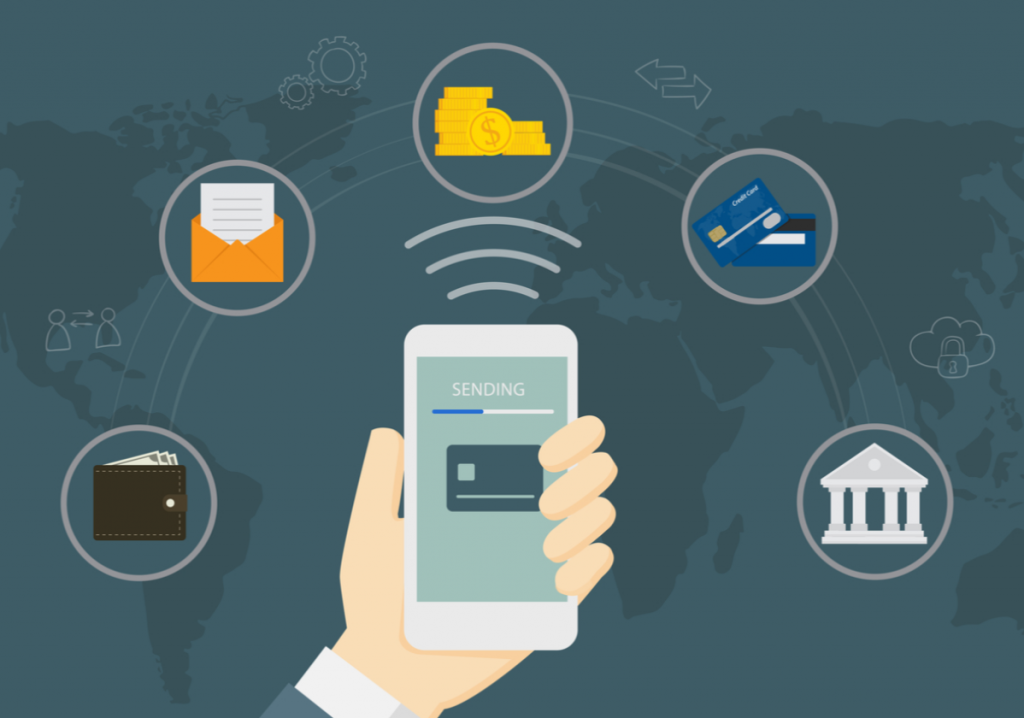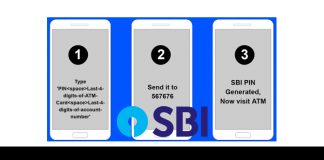If you have an interest in internet banking and want to know about the digitization, then this is the right place for you. If you’re a student finding the role of digitization in banking group discussion points, this article is gonna savior for you!
In today’s times, technology has been making great advances in the world. It is through innovation and development in technology today that people are able to lead better and more comfortable lives. One sector where technology has made significant changes with its presence is the banking sector. Technology has brought digitization in the banking sector which has helped greatly in the advancement of the sector. This digitization has also caused the banks to provide a variety of their services to the customers with more efficiency and effectiveness.
So, What is Digitization in Banking?
Digitization has had a huge impact on the banking industry. Digitization is the process through which data is transformed into a digital format with the help of technology. The importance of digitization is significant in the banking sector. When banking is done manually, it can sometimes cause errors that can lead to losses of giant proportions. It also becomes difficult to handle large amounts of cash while banking manually.
Thus, with the involvement of technology, there is a sense of security in the banking industry. Digitization in the banking sector helps the customers of the banks in many ways. It makes their life more comfortable and helps them in saving a lot of time as now, due to digitization, they do not have to get up, leave the comfort of their homes and visit their banks for every banking facility.
Let’s dig into the role of digitization in banking group discussion points.
Importance of Digital Banking
The banking sector needs to keep with the rest of the world as it cannot afford to lag behind. So, as the rest of the world is adopting technology and going digital, it makes complete sense that the banking sector should also be digital. The banking sector is, in many ways, responsible for the livelihoods for a large amount of the world’s population as most people in the world trust the banks with their money. So, it is not only important but necessary that the customers’ trust should be rewarded by the banks. The banks have to show that they are taking the utmost care of their customers and their deposits.
The way to do this is by going digital. This adds to the security of people’s money and provides them a lot of facilities which can help make their lives better. Gone are the days of standing in long queues at banks. Now, people can make use of the internet to make transactions. It saves their time which they can utilize for other important things in their life. Also, for some people, visiting a bank is a daunting task. There are many people who cannot afford to take a day off work and visit the bank. So, digital banking comes as a huge relief in those cases as well.
Advantages of Digitization in Banking
There are a lot of benefits associated with the introduction of digitization in banking. Below is a list of some of the advantages of digital banking:
- Reduces the gap between rural and urban areas.
- With the help of ATMs and cashless transactions, the costs will be reduced for both the customers and the banks.
- Enhancing the customer experience.
- Due to digitization, more data will be available to banks. Banks can make use of digital analytics to make sound data-driven decisions.
- The ease in banking will bring in more customers.
- Human error will also be reduced with digital banking.
- It increases productivity.
- The threat of fake currency will be reduced as there will be an increase in cashless transactions.
- Automation will eliminate repetitive tasks.
Disadvantages of Digitization in Banking
Although there are a lot of benefits in going digital, digitization in banking does not come without disadvantages. Below is a list of some of the disadvantages of digitization in banking:
- Increasing the use of technology will result in a loss of jobs.
- As a result of online banking, some branches will also have to be shut down.
- There is a looming risk of phishing and other cyber-attacks.
- It can also compromise the privacy of customers.
Benefits of Digitalisation to Accountants
The customers are not the only ones benefiting from digitization in banking. The accountants also enjoy some advantages. Below is a list of advantages of digitization that are enjoyed by accountants.
- Ease of use
- Less consumption of paper
- Better security
- Elimination of repetitive tasks
- Utilizing the saved time for other important activities
Role of Digitization in Banking

Following are some of the roles performed by digitization in banking:
- Banks play a significant role in the lives of people. There are many people who make at least one financial transaction in a day. Thus, banks always strive to improve customer experience by adopting the latest technology.
- To keep up with the other sectors in the world, the banking sector also needs to be digitized.
- The pace at which mobile banking is growing is faster than the pace of online banking.
Types of Banking Services
The most common function performed by banks is lending and storing money from people. But this does not mean that the banks do not perform any other functions. There is a wide variety of services that banks offer to their customers to satisfy their financial needs. The following is a list of the various types of services provided by banks to its customers:
| Loans | Banks perform the function of lending out money to people in the form of loans. People have to put something up as collateral to get these loans. The banks then charge a percentage of interest on the loans advanced to the public. |
| Overdraft | The overdraft facility provided by banks allows the customers to draw more money than they actually have stored in their bank account deposits. |
| Cheque | Banks provide its customers with cheque books which the customers can use to draw money from their bank accounts. |
| Exchange of Foreign Currency | People who need foreign currency in order to travel to and from foreign countries can take the help of banks who can exchange a person’s local currency into a foreign currency of his or her choice. |
| Credit Instruments | There are various credit instruments that are there such as bills of exchange, cheques, promissory notes, etc. On behalf of their customers, the banks pay and collect these credit instruments. |
| Consultancy | Various big banks perform the function of consultancy for their customers. In this process, legal, financial and market experts are hired by the banks who then advise the customers on various things like tax, income, investment, trade, etc. |
| Bank Guarantee | It is the modern banks that provide their customers with the facility of bank guarantee. When certain funds have to be deposited in courts or government offices by customers for a specific purpose, the customers can call upon the banks who can act as a guarantee for the customers. |
| Credit Cards & Debit Cards | The facility of credit and debit cards provided by banks brings convenience and efficiency in the lives of its customers. The customers can make payment for their purchases through these cards. This service also contributes to the cause of a cashless society. |
| ATM Services | Automated Teller Machines or ATMs provide the opportunity for customers to perform banking functions whenever they are near an ATM. They can withdraw money, make deposits and also make bank enquiries with the help of these ATMs. |
| Online Banking | Online banking allows customers to perform banking activities like bill payments, money transfers, balance enquiries, etc. via the internet. |
| Mobile Banking | This feature gives consumers the option to perform banking functions with their phones. This results in convenience and also saves the time of customers. e.g. UPI. |
| Accepting Deposits | People usually deposit their money with banks as banks are considered a safe option. This also allows the customers to earn interest on their deposited money. |
| Lockers | The customers also get the facility of lockers from banks which provides the opportunity to save and store their valuables in these lockers. |
FAQs on Role of Digitization in Banking
The process of digitization involves the conversion of various forms of information like text, image, and sound into digital format. Digitization helps in making life easier for people and also opens up a lot of new opportunities. It also helps in better governance and the betterment of society.
To improve quality, build consist and increase efficiency in the business activities, digitization is used.
Digital banking products mean the services or facilities related to banking that are available online to customers.
Digitization, in business, is the process through which data is transformed into a digital format with the help of technology.
Mobile banking is part of digital banking. Digital banking is a broader concept.
You May Like: Best Books To Read Before Starting A Business
Final Words
It was the decade of the 60s when the early traces of digital banking were witnessed in the world with the introduction of ATMs. With the emergence of the internet in the 1980s, the facilities provided by banks started to move to the internet, one step at a time. Now, the times are such that it is impossible to live without technology. We rely on it for small things in our life. So, how can a person be dependent on technology for the little things in his or her life like ordering food or watching videos on their phone but do not pay attention to the major things like their finances and their deposits in banks? Thus, to keep up with the modern world, digitization in banking is a must.

Contents In This Article







![11 Best Solar Water Heaters in India [2023]: Reviews Best Solar Water Heaters in India](https://cdacmohali.in/wp-content/uploads/2020/12/Best_Solar_Water_Heaters_in_India1-100x70.jpg)






![Domino’s Franchise in India [Cost, Profit & More] Domino's Franchise in India](https://cdacmohali.in/wp-content/uploads/2020/03/Dominos-Franchise-in-India.jpg)

